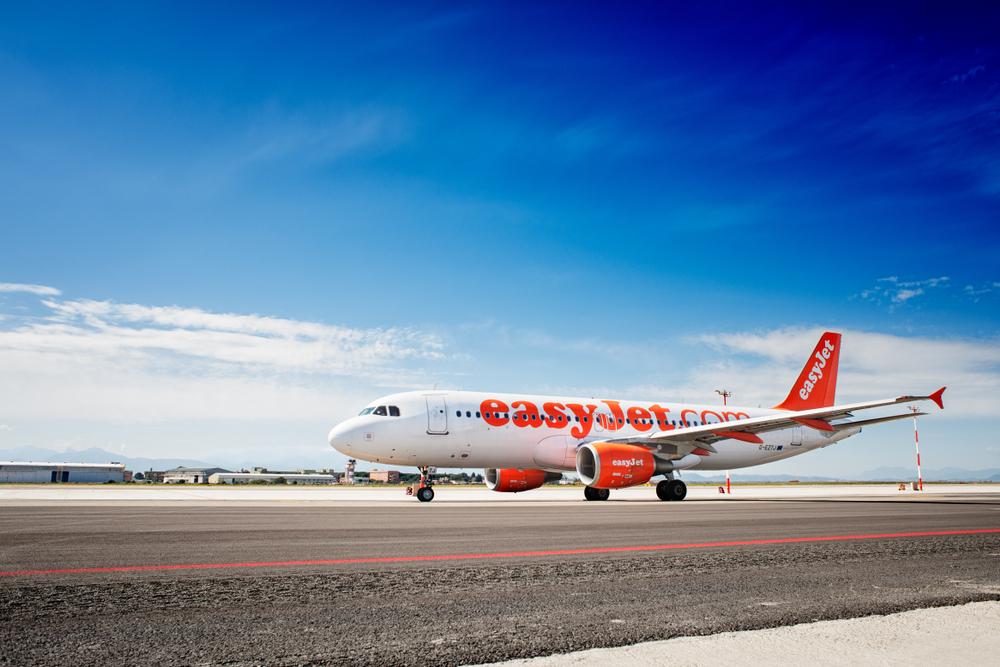easyJet PLC (LON:EZJ) have seen their shares in green as the firm gave an impressive update to shareholders.
Shares in easyJet trade at 1,507p (+3.97%). 21/1/20 11:00BST.
“easyJet has delivered a strong performance in the quarter. The delivery of self-help initiatives, robust customer demand and low levels of competitor capacity drove outperformance in both our passenger and ancillary revenue per seat leading to an upgrade to our H1 revenue guidance. Our cost performance was in line with expectations, while our Operational Resilience programme continued to be a driving force behind a robust operational performance.”
The firm said that it has started its new financial year strongly, and told shareholders that it expects its interim loss to improve from last year.
The firm reported that it had seen a half year loss of £272 million in the six month period to March 31 2019, however the firm seems to have bounced back.
In the first quarter of its financial year, the low budget airline reported that its total revenue grew 9.9% year on year to £1.43 billion.
Notably, passenger revenue also climbed 9.7% to £1.12 billion which was a positive for the firm.
Passenger numbers in the first quarter increased by 2.8% to 22.2 million, with capacity increasing 1.0% to 24.3 million seats. Load factor was up 1.6 percentage points to 91.3%. Airline revenue per seat increased by 8.8%, exceeding management expectations.
easyJet also said that underlying costs for the quarter were in line with expectations, with airline headline costs per seat excluding fuel rising by 4.3%.
The firm attributed this rise to planned lower capacity growth, new aircraft deliveries, crew pay rises and political action in France which caused over 800 cancellation, and disrupted rivals such as Ryanair (LON:RYA).
easyJet improved its on-time performance in the quarter, with 80% of planes landing within 15 minutes of scheduled arrival, up from 79% in the same period last year.
easyJet noted 1,274 cancellations – with the majority coming from the strikes in France – and saw delays of over 3 hours decrease by 21%.
Speculating further, the firm said that it it expecting its full year capacity to grow by 3% with interim capacity to rise by 1.5%, which seems to have caught shareholder’s attention. The firms capacity in financial 2019 was 105 million seats.
Revenue per seat in the first half is guided to grow by mid to high single digits – versus previous guidance of low to mid single digits. The airline’s revenue per seat in the first half financial 2019 was £50.71.
Finally, the firm is expecting a full year bill of £1.64 billion and has told the market that it expects to break even in financial 2020.
Commenting, Johan Lundgren, easyJet Chief Executive said:
“I’m pleased that we have made a strong start to the year with continued positive momentum. The improvement in our revenue per seat has been driven by our self-help revenue initiatives combined with robust customer demand and a lower
capacity growth market.
“Cost per seat is in line with expectations, helped by our Operational Resilience programme which has not only improved overall customer satisfaction in the quarter but also enabled us to manage our costs.
“easyJet holidays launched successfully with customers looking to benefit from our unrivalled flexibility, great value and handpicked hotels.
“Being an industry leader in sustainability is important to us, and since our announcement in November we have offset the carbon emissions from the fuel used for all our flights. This means nine million customers have flown net-zero carbon flights with us and our offsetting programme has been received very positively by customers, staff and other stakeholders.
“We, of course, recognise offsetting is only an interim measure and we continue to work on reducing our carbon footprint in the short term, coupled with long-term work to support the development of new technology, including hybrid and electric planes, to reinvent aviation for the long-term.
“And I am delighted to confirm that Peter Bellew has now joined easyJet as Chief Operating Officer.”
November worries
In November, the firm saw their full year profits plunge.
easyJet revealed that headline profit before tax declined 26% to £427 million. The airline emphasised, however, that this figure does lie towards the top end of its £420-430 million guidance range.
For the year ending 30 September, passenger numbers grew by 8.6% to 96.1 million.
Total revenue was up by 8.3% amounting to £6.4 billion, compared to the £5.9 billion figure recorded the year prior.
easyJet said that total revenue per seat declined by 1.8% to £60.81, driven by weak consumer confidence.
It seems that easyJet have managed to bounce back from their dip in November. With the strong start to their financial year, shareholders will be keen to see recovery across 2020.

